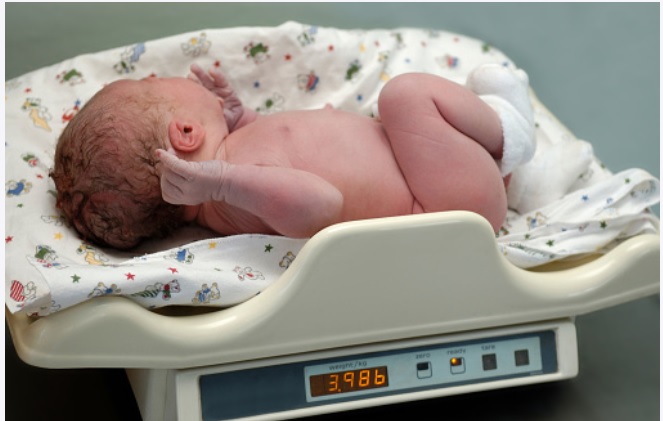What’s the average baby weight by month? The average baby weight chart shows how much babies weight at any given age. Learn how to track your babies growth and what causes changes in weight.
Easy Homemade Baby Food Ideas
Babies come in all shapes and sizes, but one thing we know for sure is that they grow. Find out how much a baby weighs by the months to track their growth.
Total weight gain during pregnancy?
Mom—whether you’re motivated by a medical chart or not, it’s about to get real. The average baby weight by month will range between 12 lbs to 14 lbs. Based on this fact, we’re looking at an average gain of 10 pounds in 12 weeks—so yeah, it’s time to start getting ready.
The average weight of a baby changes drastically during the first year. This is due to the fact that babies grow at different rates, and this is not always in a linear way.
It is important to track your baby’s weight and height to make sure that they are growing at a healthy rate. The growth chart can help you monitor your baby’s progress over time and identify any red flags early on.
We can see from the graph that babies are gaining weight as they grow older, but not always in a linear way.
Understanding baby size
The size of a newborn baby is usually around 7 pounds. This can vary depending on the weight of the mother.
A baby’s weight is usually measured in pounds and ounces. The average weight for a baby at birth is 7-8 pounds, 3-4 ounces.
A newborn’s weight gain varies throughout the first year. A healthy baby will typically gain about 1 ounce per day during these first few months.
Chart of average weights
Babies grow and develop at different rates. This is especially true in the first few months of their lives.
The average baby weight by month is a great way to get an idea of how much your baby should weigh at any given month. The chart below shows that the average weight for a newborn baby is 8 pounds, 13 ounces (4.7 kg).
Babies grow and develop at different rates. This is especially true in the first few months of their lives. The average baby weight by month is a great way to get an idea of how much your baby should weigh at any given month. The chart below shows that the average weight for a newborn baby is 8 pounds, 13 ounces (4.7 kg).
| Age | 50th percentile weight for male babies | 50th percentile weight for female babies |
| Birth | 7.8 lbs. (3.5 kg) | 7.5 lbs. (3.4 kg) |
| 0.5 months | 8.8 lbs. (4.0 kg) | 8.4 lbs. (3.8 kg) |
| 1.5 months | 10.8 lbs. (4.9 kg) | 9.9 lbs. (4.5 kg) |
| 2.5 months | 12.6 lbs. (5.7 kg) | 11.5 lbs. (5.2 kg) |
| 3.5 months | 14.1 lbs. (6.4 kg) | 13 lbs. (5.9 kg) |
| 4.5 months | 15.4 lbs. (7.0 kg) | 14.1 lbs. (6.4 kg) |
| 5.5 months | 16.8 lbs. (7.6 kg) | 15.4 lbs. (7.0 kg) |
| 6.5 months | 18 lbs. (8.2 kg) | 16.5 lbs. (7.5 kg) |
| 7.5 months | 19 lbs. (8.6 kg) | 17.4 lbs. (7.9 kg) |
| 8.5 months | 20.1 lbs. (9.1 kg) | 18.3 lbs. (8.3 kg) |
| 9.5 months | 20.9 lbs. (9.5 kg) | 19.2 lbs. (8.7 kg) |
| 10.5 months | 21.6 lbs. (9.8 kg) | 19.8 lbs. (9.0 kg) |
| 11.5 months | 22.5 lbs. (10.2 kg) | 20.7 lbs. (9.4 kg) |
| 12.5 months | 23.1 lbs. (10.5 kg) | 21.4 lbs. (9.7 kg) |
Weight percentiles explained
The weight percentile is an estimate of the percentage of infants whose weight falls below the given weight.
A baby’s weight at birth is usually around 7 pounds, and it doubles about every 20 weeks.
Average Baby Weight by Month:
Month Percentile
1st 10%
2nd 20%
3rd 30%
4th 40%
5th 50%
What to expect from weight gain in babies
Weight gain in babies is a natural process. It is necessary for the baby to develop and grow.
The weight gain of a baby can be measured in three ways:
– Weight percentile: This is the weight of the baby compared to other babies of the same age and sex.
– BMI (Body Mass Index): This is the weight of a person divided by their height squared.
– Head circumference: This measures how much space there is around your baby’s head when they are born, or how much they have grown since birth.
Weight in premature babies
Weight is one of the most important factors in the development of premature babies. Premature babies are born before the 37th week of pregnancy and they are at risk for many complications. One of the most common complications is low birth weight.
Low birth weight can lead to a number of health problems, including breathing difficulties, anemia, and developmental delays. Weight gain in premature babies is crucial for their growth and development.
🔥🔥Click here to follow US IT BARI-All about Healthy Foods site in Google News🔥
In order to prevent low birth weight, parents should make sure that their baby eats as much as possible. The baby should also be fed on demand rather than on a schedule because feeding schedules can cause eating disorders in premature babies.
Parents should also make sure that their baby has enough time to sleep because it helps with weight gain by increasing levels of insulin-like growth factor (IGF) in the blood stream which helps with cell growth and repair.
What factors affect baby weight?
The weight of a baby is influenced by many factors. Some of these include the mother’s weight, the age and height of the mother, and the position that the baby is in during labor.
The weight of a baby also depends on whether or not they are born prematurely. Premature babies are often smaller in size than full-term babies.
Why is baby weight important?
The answer to this question is quite simple. The weight of the baby is important because it can be used for predicting a number of health issues in the future. Baby weight is important for both premature babies and full-term babies.
Related Post
Best Superfoods for babies
Best Baby Foods for Stage 3 Babies
Ultimate Guide for Parents Who Want To Start a Healthy Diet for Their Baby
Best Baby Foods for your babies
Best Superfoods for your Babies
100% All Organic Banana Baby Food
Should I add rice cereal

All About Healthy Foods Content Writer With SEO Expert
 Ask us any question!
Ask us any question!

